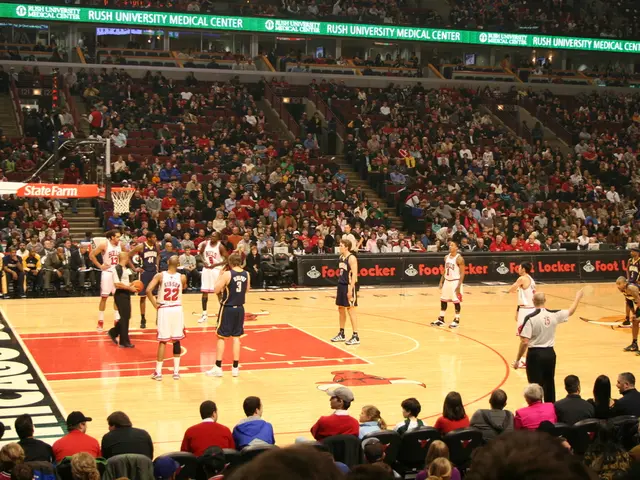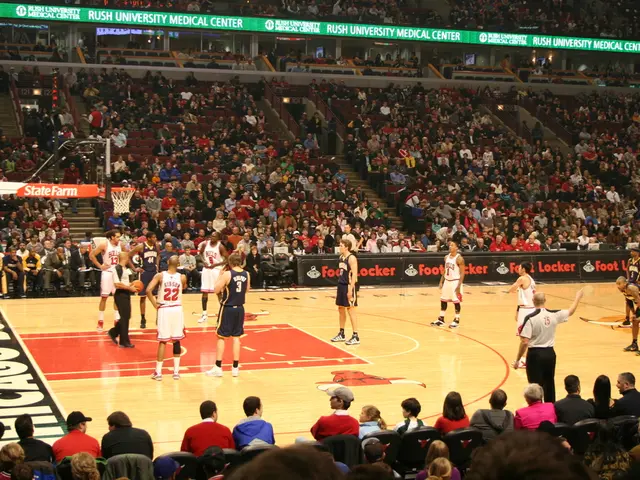Investors evaluate the impact of US tariffs and Brazil's weather on the coffee market
Global Coffee Market Disrupted by U.S. Tariffs and Adverse Weather Conditions
The U.S. tariffs on Brazilian coffee, set at a steep 50% since late July 2025, are causing significant disruptions in the global coffee market. This tariff makes Brazilian coffee uncompetitive in the U.S., the country's largest single coffee export market, forcing Brazilian exporters to seek new buyers elsewhere, particularly in China and other parts of Asia and Europe.
At the same time, Brazilian coffee-growing regions are experiencing worsening weather conditions, including unprecedented droughts, which have stunted coffee yields and caused exporters to draw down reserves. Around 60% of Brazilian coffee production comes from smallholder farms that are particularly vulnerable to these climate disruptions. The ongoing climate challenges exacerbate pressures on supply already strained by tariffs and geopolitical tensions.
These factors are reshaping the global coffee market in several key ways:
- Rising prices worldwide: The tariffs increase Brazilian coffee costs in the U.S., leading buyers to seek alternative origins. However, other main producers like Colombia cannot fully meet demand, pushing coffee prices up across origins.
- Supply chain realignment: Brazil is redirecting exports towards China, a growing coffee consumer, especially among younger demographics. China has recently authorized over 180 Brazilian coffee exporters to enter its market, signaling a strategic pivot that could shift global trade balances and reduce U.S. dominance as Brazil’s top buyer.
- Potential inflationary effects in the U.S.: Increased coffee prices due to tariffs may contribute to higher costs for consumers and businesses across the U.S. coffee supply chain, including roasters and retailers.
- Long-term market dynamics: If the tariffs persist, Brazil’s amplified presence in Asian and European markets may entrench new trade patterns. Meanwhile, climate-related production volatility continues to threaten stable supply.
In addition to these changes, the physical markets for raw sugar are showing improving demand, while ICE, the trading platform for coffee futures, saw gains on Wednesday. The cold snap in some of Brazil's growing areas is being assessed for its impact on coffee production. White sugar was little changed at $486.70 a ton, while raw sugar hit a two-month high of 17.05 cents on Tuesday. Robusta coffee futures rose 4.6% to $3,796 a metric ton, reaching its highest in nearly two months at $3,820.
Dealers predict that coffee has likely hit its highs for now, in the absence of a fresh disaster. The tariff issue will mainly impact premiums and discounts for physical grades of coffee, and whether contracts are fulfilled or not. Ivory Coast cut its export contract sales of the 2025/26 main crop to 1.2 million tons, down from 1.3 million. Reports of light, spotty frosts in some Brazilian coffee areas contributed to the rise in coffee prices this week. New York cocoa prices fell 2.1% to $8,490 a metric ton, while raw sugar slipped 0.3% to 16.89 cents/lb.
[1] BBC News [2] Reuters [3] Bloomberg [4] The Guardian [5] CNN Business
A concerned trader might criticize the impact of U.S. tariffs on Brazilian coffee, stating, "The 50% tariff on Brazilian coffee is not only affecting the global coffee market, but it could also lead to inflationary effects in the U.S., influencing costs for consumers and businesses across the coffee supply chain."
In light of the adverse weather conditions, a sports enthusiast could suggest, "Given the ongoing climate challenges and their impact on Brazilian coffee production, it may be an opportune moment for sports teams looking to collaborate with sponsors from the index of growing coffee-producing nations, as they weather the market disruptions together."






